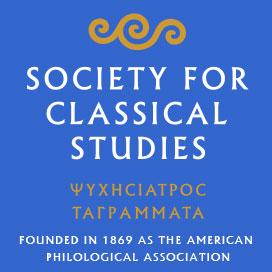As an undergraduate Classics student in the 1980s, I read somewhere the story of a Black man who attempted to register to vote in a southern state under Jim Crow. Local election officials administered him a “literacy test. He passed one such “test,” then another and another, including (the story goes) reading texts in Latin and Greek. Eventually presented with a document containing Chinese characters, he realized he was never going to be permitted to register.[1]
This story left a powerful impression on me, in pointing up a paradox about the field I had recently undertaken to study. I supposed that this Black would-be voter had found Greek and Latin personally rewarding, and perhaps socially and politically rewarding, to study; yet these same skills were also deployed against him, by those intent on denying him social and political participation based on his race. I know now that this paradox is more widely attested: white racists have long used the learning of Greek and Latin to exclude Black people and other people of color from education, positions of power and privilege, and indeed from “humanity” as such,[2] even as Classical texts have also served, under other circumstances and in other hands, as beacons of hope for those struggling to throw off tyranny and achieve a more just society. Our field’s history presents a tangled tale of instrumentalizations aimed both at human liberation and at oppression based on race, gender, and other ad hoc criteria. Our field has been, and continues to be, used for social good and for social ill.
In this regard, I am deeply troubled by the recent U.S. Supreme Court ruling that the application of affirmative action principles in higher education admissions is unconstitutional—this court having affirmed the same practice as constitutional at various times in the past. Many SCS members work in educational institutions where the diversity and representativeness of the students is of great concern. I believe that this concern should be particularly sharp for Classicists, given the history of racial gatekeeping based on Classical learning adumbrated above. In my own institution, Johns Hopkins University, a vast expansion in the racial and socioeconomic diversity of the undergraduate student population has taken place over the past 15 years. This shift has correlated with a striking increase in the overall quality of the students and of their educational experience, as survey results have demonstrated. These students enter my classroom, and those of my departmental colleagues, relishing their study of the ancient world. They find Classics challenging, inspiring, even liberating. Principles of affirmative action in admissions are part of the story of how this group of students has come to us, to our benefit and also (I hope) to theirs: young people whose parents and ancestors lacked access to higher education, and in some cases were denied access because of their skin color, have arrived and flourished. Now I worry about the future of this community, and of the individual young people whose passion and brilliance make the community spark. In the wake of the Supreme Court ruling, my institution has strongly affirmed its continuing commitment to diversity and inclusion. I believe that we, as members of the SCS, likewise need to reaffirm this commitment, and resolve to sustain it in whatever ways we can, in all of our institutions and communities.
The SCS membership has recently voted to approve a recommendation of the Committee on Professional Ethics to eliminate language in our Statement on Professional Ethics referring to “affirmative action” in those words, in light of the changing legal landscape. The aim of that change was to create a clear statement of commitment to diversity that does not depend on the legal status of this specific program. This change in no way lessens the commitment of SCS to support the aims and principles underlying affirmative action.
Another troubling development in recent months has been the spate of assaults on academic freedom. The American Council of Learned Societies posted statements last Spring concerning New College of Florida and Florida House Bill 999; the SCS board voted to endorse and add the SCS as an institutional signatory to both statements. Some of the justifications for these hostile and anti-intellectual moves have been framed in terms of misrepresented and false “Classical” ideals of education.[3] Recognizing that our field is once again being used for ill, the SCS board recently produced and endorsed a short text, entitled “What is Classics?” which has been posted to the SCS website. This text aims to address a general public audience to explain fairly concisely what “Classics” means as an academic discipline. It aims to be widely inclusive in describing the work that Classicists do. It further remarks on our field’s historical implication and participation in racial and other forms of discrimination, and on efforts being made to address and repair that; and repudiates efforts, present and past, to appropriate and misrepresent Classics for discriminatory purposes. We consider this text to be a living document, to be updated and revised as our field and the world around us change. Perhaps, in a small way, it can bolster efforts to do good and hamper efforts to do ill with Classical knowledge.
Matthew Roller, SCS President, 2023
[1] I have been able to trace this story to Edwin R. Embree, Brown America: The Story of a New Race (New York: Viking Press, 1931) p. 184, where no further source is given (“The story is told…”).
[2] See Henry Louis Gates, Jr., “Authority, (White) power and the (Black) critic: It’s all Greek to me,” Cultural Critique 7 (1987), especially pp. 20-23 on Greek and racial gatekeeping in 19th century America. Latin, and to a lesser extent Greek, were widely compulsory for admission to universities well into the 20th century.
[3] Consider also the “classical education movement” and “classical training test,” as instances in which the word “classical” is given a very partial framing to create alignment with a specific set of religious and ideological positions.

